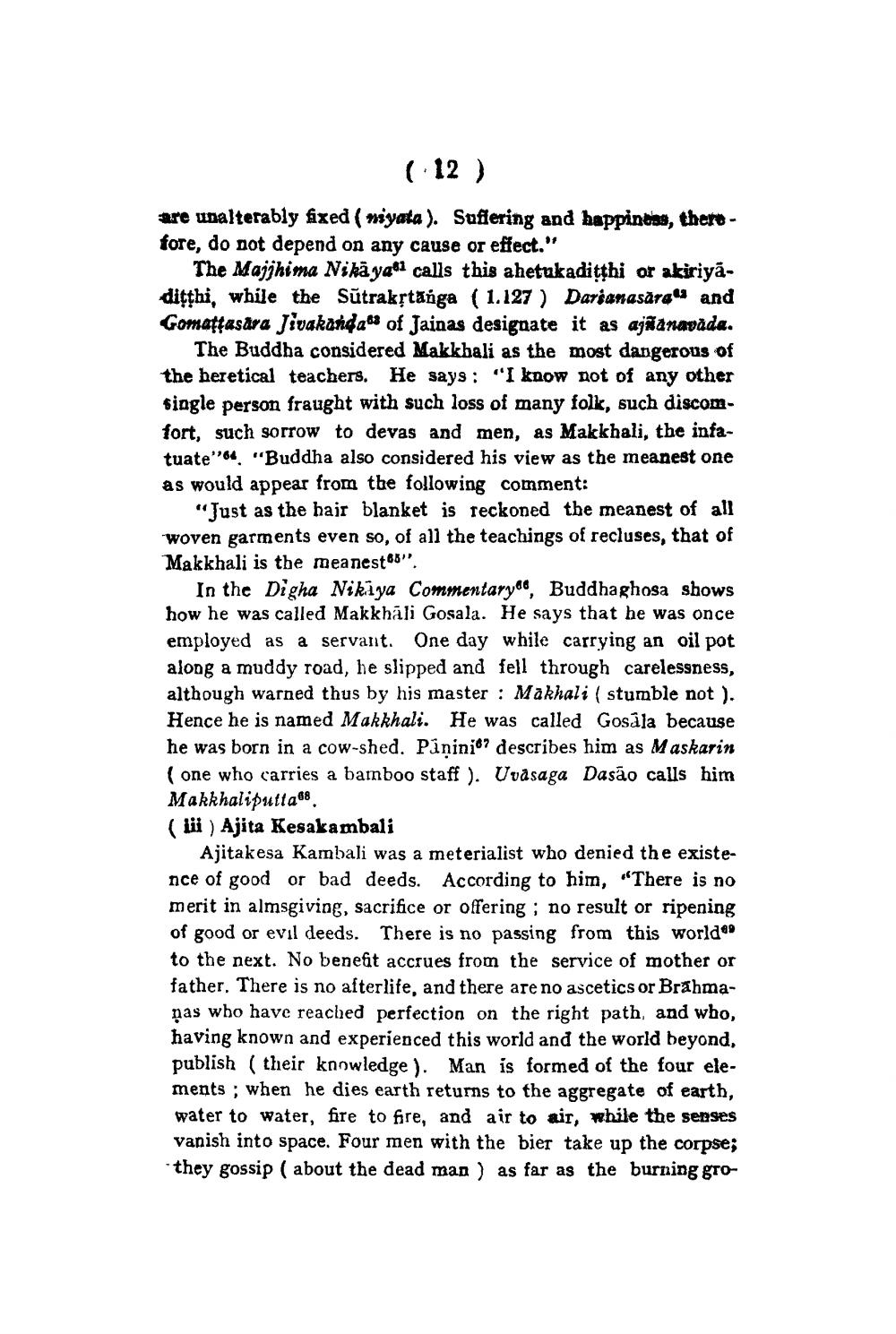________________
( 12 )
are unalterably fixed (miyata). Suffering and happines, there - fore, do not depend on any cause or effect."
The Majjhima Nikayat calls this ahetukadithi or akiriyaditthi, while the Sūtrakstānga ( 1.127 ) Darianasāra" and Gomattasära Jivakandata of Jainas designate it as ajñanavāda.
The Buddha considered Makkhali as the most dangerous of the heretical teachers. He says: "I know not of any other single person fraught with such loss of many folk, such discomfort, such sorrow to devas and men, as Makkhali, the infatuate''4 "Buddha also considered his view as the meanest one as would appear from the following comment:
"Just as the hair blanket is reckoned the meanest of all woven garments even so, of all the teachings of recluses, that of Makkhali is the meanest66".
In the Digha Nikiya Commentaryer, Buddhaghosa shows how he was called Makkhāli Gosala. He says that he was once employed as a servant. One day while carrying an oil pot along a muddy road, he slipped and fell through carelessness, although warned thus by his master : Makhali ( stumble not ). Hence he is named Makkhali. He was called Gosala because he was born in a cow-shed. Pininio? describes him as Maskarin (one who carries a bamboo staff ). Uvasaga Dasão calls him Makkhaliputta68. (iii) Ajita Kesakambali
Ajitakesa Kambali was a meterialist who denied the existence of good or bad deeds. According to him, "There is no merit in almsgiving, sacrifice or offering ; no result or ripening of good or evil deeds. There is no passing from this world to the next. No benefit accrues from the service of mother or father. There is no afterlife, and there are no ascetics or Brahmanas who have reached perfection on the right path, and who, having known and experienced this world and the world beyond, publish ( their knowledge). Man is formed of the four elements; when he dies earth returns to the aggregate of earth, water to water, fire to fire, and air to air, while the senses vanish into space. Four men with the bier take up the corpse; they gossip ( about the dead man ) as far as the burning gro




